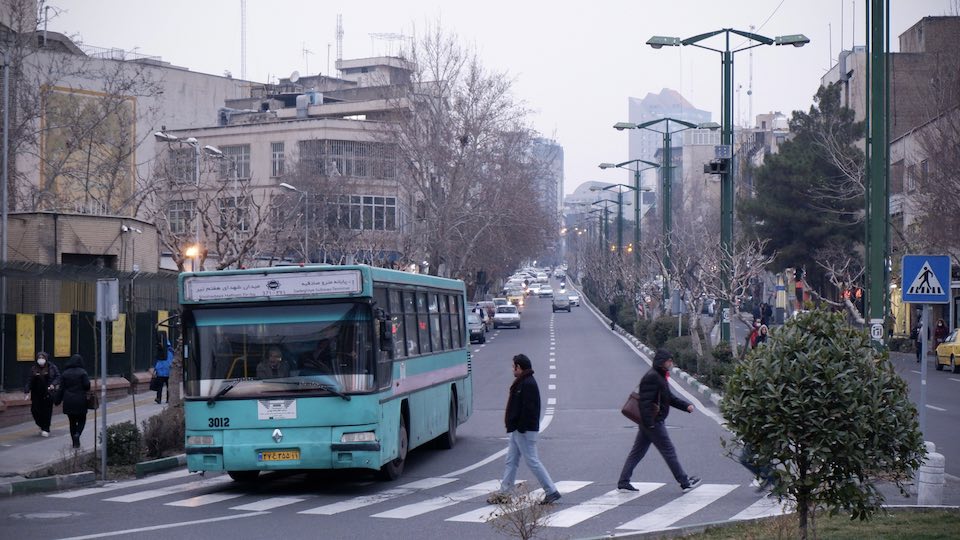Iranian Authorities Plan to Crack Down on Veiling Offenses

Police in Iran plan to take more aggressive action against violations of the country’s veiling laws. In an April 10 announcement marking the end of Ramadan, the authorities outlined plans to pursue more strict enforcement, including country-wide checks, the Iranian news agency Mehr reported.
It remained unclear however in the wake of the announcement what the scope of the enforcement actions would be. Since the women-led mass protests in the fall of 2022, the notorious morality police have at times been less strict in enforcing regulations on the streets – in part because they have met with greater resistance. More recently however human rights watchdogs have reported that police checks are on the rise. The regime has also stepped up surveillance of public spaces, as Amnesty International reported in March.
Surveillance Cameras
One example of tightening enforcement is the use of surveillance cameras to track down women and girls who are driving or riding in cars without headscarves or with head coverings deemed “inappropriate.” Women who have been targeted have received text messages ordering them to surrender their vehicle to the so-called Moral Security Police. To date tens of thousands of women have had their cars confiscated on the grounds that they have violated compulsory veiling laws. In other cases women were criminally prosecuted and sentenced to flogging or prison time.
In summer 2023 Amnesty also reported that the Iranian authorities would be deploying facial recognition technology in pedestrian areas and possibly elsewhere.
Students Facing Prosecution for Dance Video
According to Amnesty, the authorities are also prosecuting women for posting images of themselves unveiled on the internet.
Last week it was revealed that a group of Iranian students were facing criminal prosecution for appearing in a dance video. In the video, several female students from Al-Zahra University in the coastal city of Bushehr can be seen dancing and riding a motorcycle.
As the Guardian reports, the president of the university told the media that the video was made without permission and constituted an “illegal activity.” Legal action would be taken against the students involved, the president said.
The president also stated that the student who produced the video had been identified. He would be held “accountable for this action along with his father.”
Criticism from Human Rights Groups
Human rights lawyers told the Guardian that the authorities had likely put pressure on the university. Hossein Raeesi, a Canada-based Iranian human rights attorney, said, “There’s no specific law banning them from dancing or riding motorcycles. This is an attempt to break the strong student movement in Iran, which showed during Woman, Life, Freedom protests that it’s stronger than ever.”
Jasmin Ramsey, deputy director of the Center of Human Rights in Iran, told the paper, “The chancellor’s threat to take legal action against these courageous young women for simply celebrating their graduation highlights the oppressive reality faced by women and girls throughout Iran.” With their dance, the students had “directly challenge the repressive diktats imposed by the state on women’s behavior.”
Last month two women were reportedly arrested after a dance video appeared on social media. It showed the women dancing in a public square in Tehran while dressed as an Iranian folk character.
In fall 2022 countrywide protests broke out in Iran, set off by the death of Jina Mahsa Amini, a young Iranian Kurdish woman. She was detained by the morality police for allegedly wearing an “improper” hijab. A UN fact-finding mission concluded that physical violence suffered after her arrest had led to her death.
Since fall 2022 more and more Iranian women are defying the country’s strict veiling laws. Religious hardliners are trying to combat this trend. A new law seeks to impose draconian penalties: In extreme cases up to 15 years imprisonment and the equivalent of more than 5,000 euros in fines. The law has made it through parliament, but has not yet gone into effect. In the coming weeks a revised version is expected to be presented to the arch-conservative Guardians Council. (dpa / js)